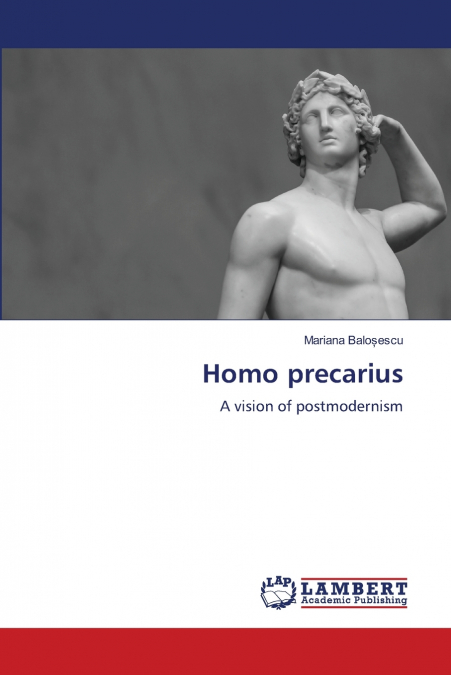
Mariana Baloşescu
Mariana Baloşescu proposes a critical vision of the postmodern man. She uses the less common concept of homo precarius, with which she associates postmodernist thinking, valuing the original meaning of the Latin root - prex. Mariana Baloşescu’s analyses of representative theoretical and literary texts demonstrate that homo precarius renounces the ideal (as harmony between the person and the Divinity), breaks ties with Christian and Jewish memory and engages in an experience of freedom of thought from which, however, he fails to obtain a clear awareness of moral responsibility. On the contrary, he ends up self-undermining his moral conscience, his understanding of good and evil. By openly opposing posthumanist ideology, Mariana Baloşescu therefore invites the reader to a harsh assessment of their own postmodern consciousness. Her book is a lucid meditation, in search of a way out of the crisis of humanism, other than posthumanism. And the subtle message that emerges from reading the book is the need for love for man and the need to return with confidence to the memory of humanity, where the sources for the rebirth of the ideal and moral consciousness are. (Porfirie Pescaru)